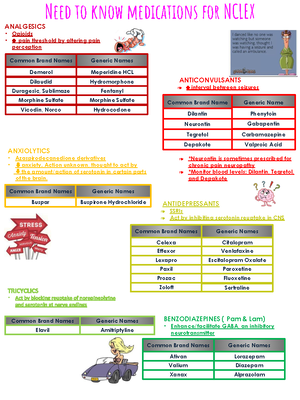- Information
- AI Chat
Was this document helpful?
2Complex Patient Case Results
Course: Health and Illness Across the Lifespan (NUR2214)
162 Documents
Students shared 162 documents in this course
University: Florida State College at Jacksonville
Was this document helpful?

Complex Patient Case Results
Doris Turner ShadowHealth
Patient Assessment
Finding:
Checked blood glucose before giving medication
Pro Tip: Since your patient is receiving insulin for her diabetes, it is important to assess her
blood sugar before and after administration monitor for intended therapeutic effect and
hypoglycemia.
Example Question:
Finding:
Asked sulfa reaction type
Pro Tip: Assessing the reaction type and severity of a stated allergy may help inform your
care plan and determine which medications are appropriate to administer.
Example Question:
How does your body react to sulfa?
Finding:
Asked for patient identification
Pro Tip: Proper identification is critical for the protection of your patient. It is recommended to
check two identifiers before interacting with the patient.
Example Question:
What is your name and birthday?
Finding:
Asked about general experience with side effects
Pro Tip: When administering routine medications, understanding the side effects that the
patient generally experiences can shape your care plan to ensure patient safety and comfort.










